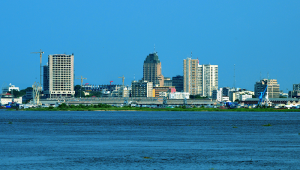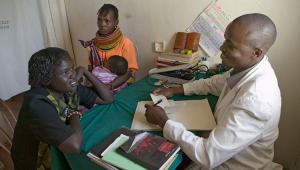Organised by the African Development Bank (AfDB), the UN Development Programme (UNDP) and the UN Economic Commission of Africa (ECA), the event saw policymakers, donor organisations and international economic policy planners descend on the DRC capital Kinshasa.
They discussed the bold steps the continent needs to take to ensure no one is left behind as Africa moves towards growth and achieving the sustainable development agenda.
In his opening address, Carlos Lopes, executive secretary of the ECA, said that “eradicating poverty while stimulating prosperity is the biggest challenge for Africa today”.
While there has been high growth the “reality is different”, and this is “growth without quality”. African states have to “insist on inclusion, employment creation and the reduction of poverty” as inequality will not correct itself, he said.
Since mid-2000, Africa has seen annual growth averaging at around 5% ‒ well above the global average of 3% per year. However this has had little impact on inequality or poverty in the region.
The 2015 MDG report, that investigated how well Africa has met the Millennium Development Goals, found that while poverty had fallen in Sub-Saharan Africa in the two decades since 1990, it lagged far behind the falls witnessed in other parts of the developing world. In 1990 Africa was home to 15% of the world’s poor population, but in 2010 it housed 35% of them.
ECA economic forecaster Bartholomew Armah warned there is no “magic bullet” or single solution to the continent’s poverty and developmental issues. Along with addressing growth and the development financing gap inequality of opportunity and of outcomes also need to be a focus, he said.
Delegates of the conference heard that the state needed to play a critical role in the transformation of economies and that real structural reforms are needed, as well as a diversification of the economy to move away from primary commodities and Africa’s overdependence on natural resources.
In addition, it was recommended that greater decentralisation and initiatives aimed at empowering sub-national jurisdictions to deliver basic social services to their communities could address spatial inequalities.
Authors of a paper scrutinising Africa’s failure to meet the MDGs argued that more targeted income distribution policies need to be implemented by increased spending on social services.
“Further efforts to combat corruption, improve governance and establish strong, credible institutions” are also needed, they said.













